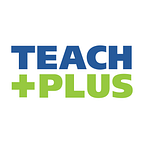All Children Deserve High-Quality Early Childhood Education
By Cara Maxwell
David and I first got to know each other in kindergarten. Even then, everyone in our class and our small town knew David was “bad” but we didn’t know why. He was fidgety, loud, unfocused, impulsive, and didn’t follow instructions. David’s teachers were often at a loss how to help him, and he continued to struggle through middle school and high school.
It was only after I became an early childhood educator years later that I understood the value of a quality early childhood education program and how that would have been helpful to David. Since then, I have seen many Davids come through my classroom doors. With everyone, I work to develop the whole child, not just their academic skills. I focus on self-regulation skills on a continuous basis. Social and emotional learning and fine and gross motor development are part of my classroom curriculum along with the academics.
One of my students is Jason. He reminds me of David in many ways. He is fidgety, has trouble controlling his impulses, is very active, and has struggles with self-regulation. I spend a lot of time working with him on self-regulation and impulse control skills. I think about David at the beginning of every academic year. What would his journey have been like if he had the opportunities my students, such as Jason, have?
High-quality early childhood education programs, such as the one that I work in as well as other state and federally funded programs, promote early brain development and the social, emotional, and cognitive development of young children. This has been shown to be especially important for children from low-income families. In 2020, there were approximately 43,491 children under the age of five in Arkansas living in poverty. We hear a lot about the “learning loss” from COVID but we are seeing a much greater loss in the areas of self-regulation and social and emotional skills. This is why it’s imperative that we offer and fully fund Pre-K education for all Arkansas children.
Despite a 29% cost of living increase, funding for early childhood in our state has not kept up, holding at $111-$114 million annually since 2008. We need to do better for our children. The number of state-funded available slots for 3- to 4-year-olds has only increased by 1,000 since 2011. Data from Annie E. Casey Foundation shows that the number of 3- to 4-year-olds attending some type of early education program has declined in recent years. It also shows that Arkansas, once a top contender in the nation for early childhood education, has also declined in the nation’s rankings. In fact, we have dropped three spots in the last year alone.
Increased funding for early childhood education in our state would also provide more stability for our teaching workforce. With more funding, we’ll be able to close the gaps between salaries for teachers in varied programs. Children thrive with stability. If we have a high-quality curriculum and program without a stable workforce, it doesn’t provide the same advantages as a high-quality program with highly effective teachers who are invested in the profession for the long term.
Thankfully, David graduated high school and went on to obtain a technical degree from a trade school. He has a family with three young children, each of whom has had the chance to attend a public Pre-K. One of his children struggles with similar issues as David. He has told me how thankful he is that his children, especially the one who struggles, have a different experience than he did. He mentions the lengths that his childrens’ Pre-K teachers have gone to ensure that their social and emotional needs, motor skills needs, and academic needs were met and credits this experience to his children’s continued success in their school careers. We need to invest in early childhood so all children in our state get experiences that set them up for success at school and beyond.
Cara Maxwell is a Pre-K teacher in the Springdale School District and a 2021–2022 Teach Plus Arkansas Policy Fellow.
